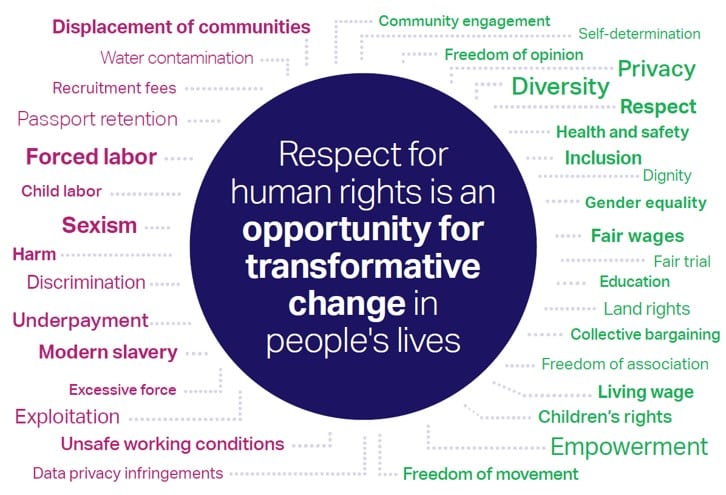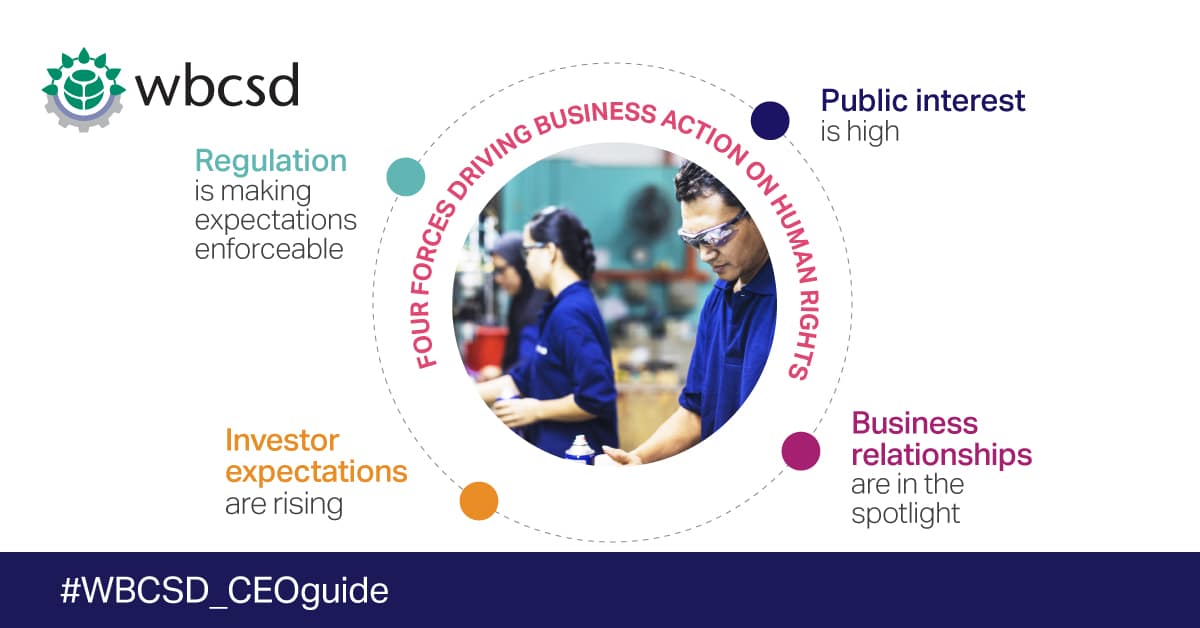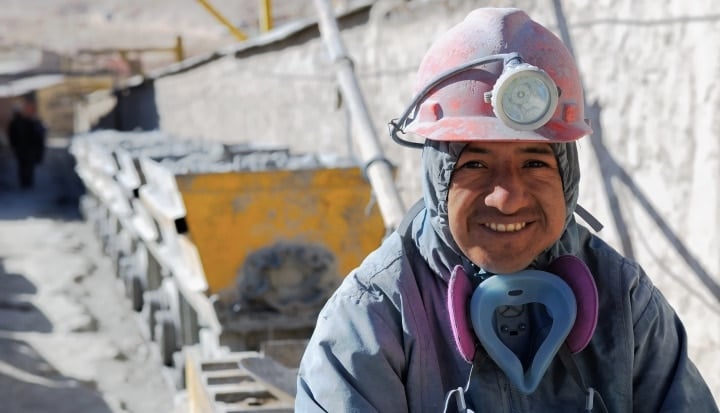Something strange has been happening in the world of business and human rights. Leaders of multinational corporations around the globe are speaking out about the negative human rights challenges faced in their operations and supply chains. Where most companies seek to avoid any public association with human rights issues, these business leaders are breaking the mold – and they want others to do the same.
Here at WBCSD, we spoke to our member companies to get behind this trend. We found a growing number of senior executives  who are increasingly aware of the foundational business responsibility to respect human rights – and of their role in raising the bar for their companies, industries and supply chains. But beyond this, they are sharing an inspiring message with their peers and partners: that they have the collective power to drive transformative change in people’s lives – especially those of the most vulnerable.
who are increasingly aware of the foundational business responsibility to respect human rights – and of their role in raising the bar for their companies, industries and supply chains. But beyond this, they are sharing an inspiring message with their peers and partners: that they have the collective power to drive transformative change in people’s lives – especially those of the most vulnerable.
To support this movement, WBCSD has launched a Call to Action for Business Leadership on Human Rights. Throughout November, in the run-up to the United Nations Forum on Business and Human Rights, we are releasing a daily video series to bring this message to life.
The series includes business leaders from across the globe sharing their personal perspectives and company positions on human rights. They speak about human rights challenges they are tackling in their operations and supply chains – related to forced and bonded labor, child labor, data security, recruitment fees, gender equality, access to water and sanitation, workers voice, collective bargaining, community engagement and more – and they extend a call to action to their peers and partners, all with the aim of inspiring and mobilizing business leadership for human rights.
What is behind this shift in perspective?
The UN Guiding Principles on Business and Human Rights (UNGPs), launched in 2011, clearly lay out the business responsibility  to respect human rights, and have catalyzed a significant expansion of the business and human rights landscape. This wave of information, activity and expectations is pushing corporate action on human rights beyond minimum standards, risk management and compliance, and into companies’ strategies, purpose and goals.
to respect human rights, and have catalyzed a significant expansion of the business and human rights landscape. This wave of information, activity and expectations is pushing corporate action on human rights beyond minimum standards, risk management and compliance, and into companies’ strategies, purpose and goals.
The momentum behind the Sustainable Development Goals (SDGs) has added fuel to this positive movement. It has helped businesses to realize that, by contributing to the achievement of human rights for all, they can play a pivotal role in building the peaceful and inclusive societies envisioned by the Global Goals.
What can business leaders do?
In the WBCSD CEO Guide to Human Rights, we suggest 4 actions that business leaders can take to influence their organizations, their supply chains and beyond:
At a personal level – KNOW the most important human rights for your company. In the words of Andrea Alvares, Chief Marketing, Innovation and Sustainability Officer at Natura, “this is what we need to bear in mind as we run our businesses: to be attentive, to rethink how we do business, to know our chains, to lead courageous changes and to engage our internal and external network in bringing about this transformation”.
At an organizational level – LEAD from the top. As noted by Brad Smith, president of Microsoft, “it requires that we have the courage of our convictions. And in addition, that we need to clearly communicate the company’s commitment to human rights to ensure that our employees appreciate that commitment and that we empower them to stand up for strong ethics and the protection of human rights”.
At a supply chain level – ENGAGE transparently with stakeholders. According to Bertrand Camus, CEO of Suez, “to meet the challenges of human rights, leaders have to engage personally and instill a collective dynamic both in their companies and in their markets. At company level, it translates into constant contact with the field, listening and paying attention to all, and especially to the most vulnerable”.
At a systemic level – COLLABORATE beyond your comfort zone. Alan Jope, CEO of Unilever, reminds his peers, “as CEO’s we have a duty to ensure that fundamental rights and freedoms are respected and upheld, not only within our businesses but throughout our value chain. There’s much that our organizations can achieve individually, but there’s even greater value when we come together through partnerships and collaborations. Ultimately, we all have the same goal: to create a fairer and more inclusive world”.
Mobilizing business leadership for human rights
Our Call to Action for Business Leadership on Human Rights builds on the concrete recommendations outlined in the CEO Guide to Human Rights, but is brought to life by the voices and examples of the forward thinking business leaders who are supporting the call. So far, it has been endorsed by senior executives of 35 WBCSD member companies. Their collective actions have significant reach – they represent diverse companies headquartered in 17 countries, with over 2.8 million direct employees and vast global supply chains. In addition, through WBCSD’s Global Network partners, over 70 business leaders have signed local calls to action to peers in their own nations and regions – in Croatian, French, Japanese, Portuguese, Spanish and Ukrainian – with more on the way.
We hope these diverse voices inspire more business leaders around the world to take action in support of human rights, and invite you to share their messages and join us in mobilizing business leadership for human rights.
Visit https://humanrights.wbcsd.org/ to find out more.









